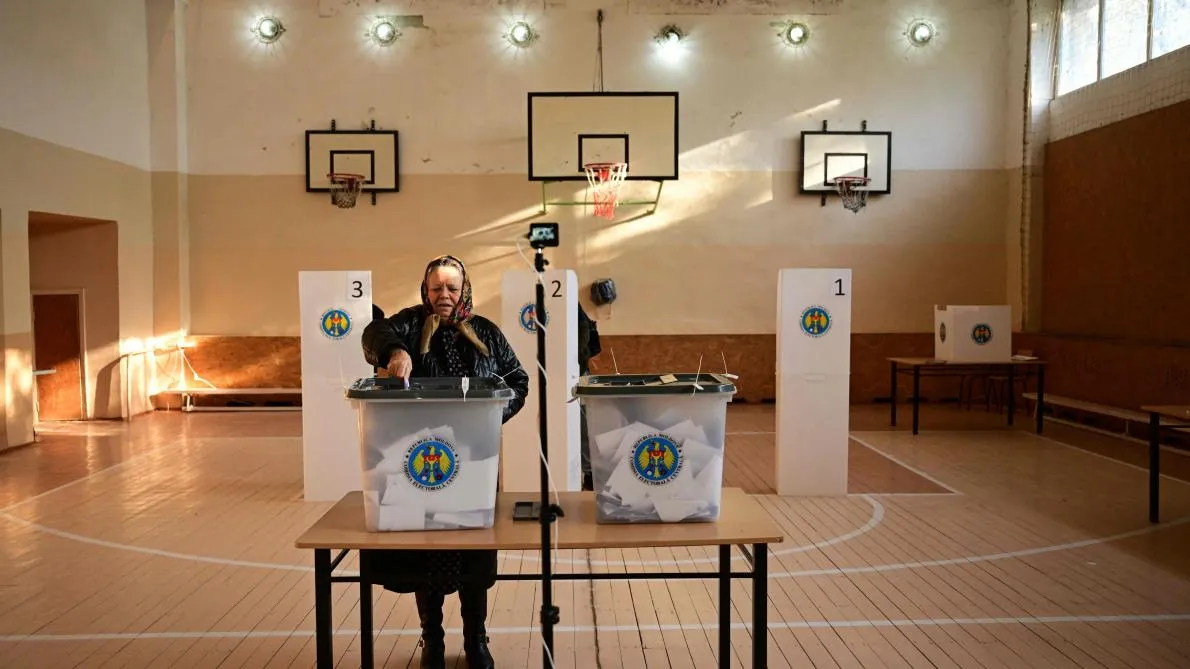Moldavie: Referendum Vote Indicates Strong Opposition to EU Membership

Moldavie Votes 'No' on EU Membership
The people of Moldavie voted 'no' on Sunday in a referendum concerning potential EU membership, with preliminary results indicating more than 55% opposition. This unexpected outcome could signify a setback for incumbent president Maia Sandu, who advocated for the EU alignment following Russia's invasion of neighboring Ukraine.
Political Dynamics
While Sandu leads in the presidential race with approximately 36% of the votes, she will face off against Alexandr Stoianoglo, a candidate seen as closer to Moscow. The election process has been overshadowed by allegations of Russian interference, which the Kremlin has denied.
- High voter participation recorded at 51.6% for the presidential elections
- Suspicion of vote-buying tactics have emerged, with reports suggesting involvement from Russian sources
- Current political climate heavily influences Moldavian citizens' opinions on EU integration
Public Opinion
Comments from the electorate reveal a split sentiment: while some support a pro-European trajectory, others express concerns about losing national identity. A notable perception of Western alignment heightens apprehension among parts of the populace struggling with economic challenges.
As the total votes continue to be counted, especially from pro-EU regions like Chisinau, the final result may shift, emphasizing the evolving nature of governance in Moldavie.
This article was prepared using information from open sources in accordance with the principles of Ethical Policy. The editorial team is not responsible for absolute accuracy, as it relies on data from the sources referenced.